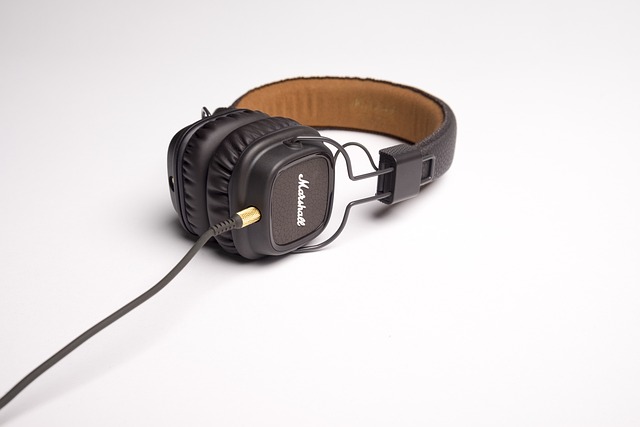What is Headphone sensitivity?
Headphones are a fundamental piece of equipment for music and sound production, but they can be tricky to understand.
Ever wonder what headphone sensitivity is, or why it’s important? Have you been confused by the tech specs that come with your headphones?

Did you know that your headphones can have a major impact on the sound quality of your music? Many people overlook the importance of headphone sensitivity and impedance, but these are two important specs that can make or break your listening experience.
In this article, we’ll explain what is headphone sensitivity and what is headphone impedance, and how they affect your audio.
Now read out more to get the best audio performance out of your headphones.
What is Headphone Impedance?
Headphone impedance is a measure of the resistance to electrical current flow in a headset. The higher the impedance, the more resistance there is to current flow. The lower the impedance, the less resistance there is to current flow.
Impedance is measured in ohms and typically ranges from 16 to 600 ohms for headphones. In general, the higher the impedance, the better the sound quality you’ll get from your headphones.
However, headphones with a high impedance may require more power to drive them than lower-impedance headphones.
If you’re using portable music players like iPods or smartphones as your source, it’s generally best to choose headphones with an impedance of 32 ohms or less.
If you’re using a home stereo system as your source, you can choose headphones with a higher impedance since they’ll be getting their power from a receiver or amplifier.
What is Headphone Sensitivity?
Now comes the real part of what is headphone sensitivity.
Headphone sensitivity is a measure of how efficiently your headphones can convert an electrical signal into sound.
It is measured in decibels of sound pressure level per milliwatt (dB SPL/mW) and is usually written as either x dBSPL/mW or x mV/Pa.
A higher headphone sensitivity rating means that your headphones are more efficient at converting an electrical signal into sound, and therefore require less power to reach the same volume levels.
There are a few things that can affect headphone sensitivity, including the type of driver used, the size of the driver, and the impedance of the headphones.
Driver type is probably the most important factor, as different types of drivers have different sensitivities. For example, planar magnetic drivers tend to have very high sensitivities, while dynamic drivers usually have lower sensitivities.
The size of the driver also plays a role, as larger drivers are usually more sensitive than smaller ones. Finally, headphone impedance can also affect sensitivity, though this is usually only a concern with lower-impedance headphones.
In general, you’ll want to look for headphones with a high sensitivity rating if you want something that’s easy to drive and doesn’t require a lot of power. Conversely, if you’re looking for headphones that can handle more power and deliver louder volumes, you’ll want to go with something that has a lower sensitivity rating. As always, there’s no one-size-fits-all.
Also here how to make wired headphoneswireless.
If you’re using a low-powered device like a smartphone, you might need to get headphones with high sensitivity so they can reach maximum volume.

On the other hand, if you’re using a powerful amplifier, you might want to get headphones with a lower sensitivity so they don’t sound too loud.
The best way to find out how loud headphones will sound to you is to try them out for yourself. If you’re looking for headphones with high sensitivity, make sure to check the specs before you buy.
Frequently Asked Questions
Is higher or lower sensitivity better for headphones?
It really depends on your headphones usage. If you’re using headphones for louder sound, then higher sensitivity is better. However, if you only intend to listen at a safe volume level, lower sensitivity could be the way to go.
Whatever you choose, make sure that your headphones are not too loud for your ears!
What is the best dB for headphones?
According to experts, the best dB for headphones should be kept between 60 and 85 decibels to minimize damage to your ears. Keeping the volume down will help you prevent noise-induced hearing loss, tinnitus, and other hearing problems. If you need music at a higher volume, we recommend limiting usage to 15 minutes or less.
Note: if you want to know how to measure dB then you can check this guide on how to measure headphone dB.
What is the difference between ohms and sensitivity?
Ohms and sensitivity are two different definitions used when talking about headphones. Ohms is the measure of resistance to the voltage supplied at specific frequencies, Sensitivity is measured in SPL (dB/mW) and represents the amount of sound pressure level produced by a pair of headphones when a set amount of power is applied at a certain frequency.
It is important to note that these two things are not particularly related but can be an indicator of sound quality.
Why is impedance important in headphones?
Impedance is an important metric when it comes to headphones because it affects the sound quality and compatibility of your headphones with devices.
Low-impedance headphones are easier to drive and pair with battery-powered devices like a smartphone, while high-impedance ones can require an amplifier in order to reach their full potential.
Knowing your headphone’s impedance level is key when choosing the right set of headphones for you.
Conclusion
Headphone sensitivity is an important specification that everyone should be aware of when looking for the perfect pair of headphones.
With a better understanding of what is headphone sensitivity, you can make an informed decision when shopping for your own pair.
So, if you’re in the market for some new headphones, keep these factors in mind and find the best set that meets your needs.
Hopefully, you have a better understanding. Comment down below any further queries you have we will surely try to help you.



